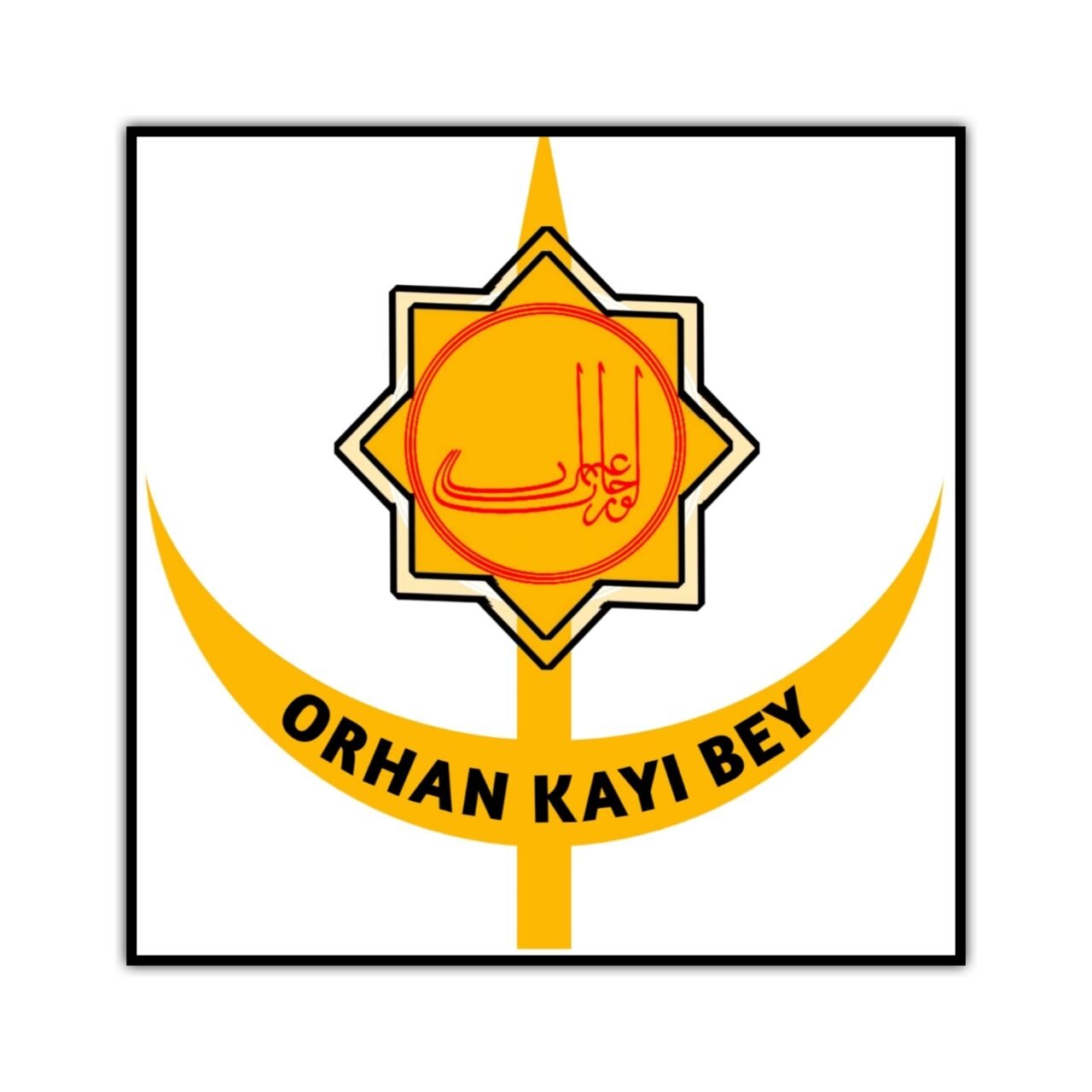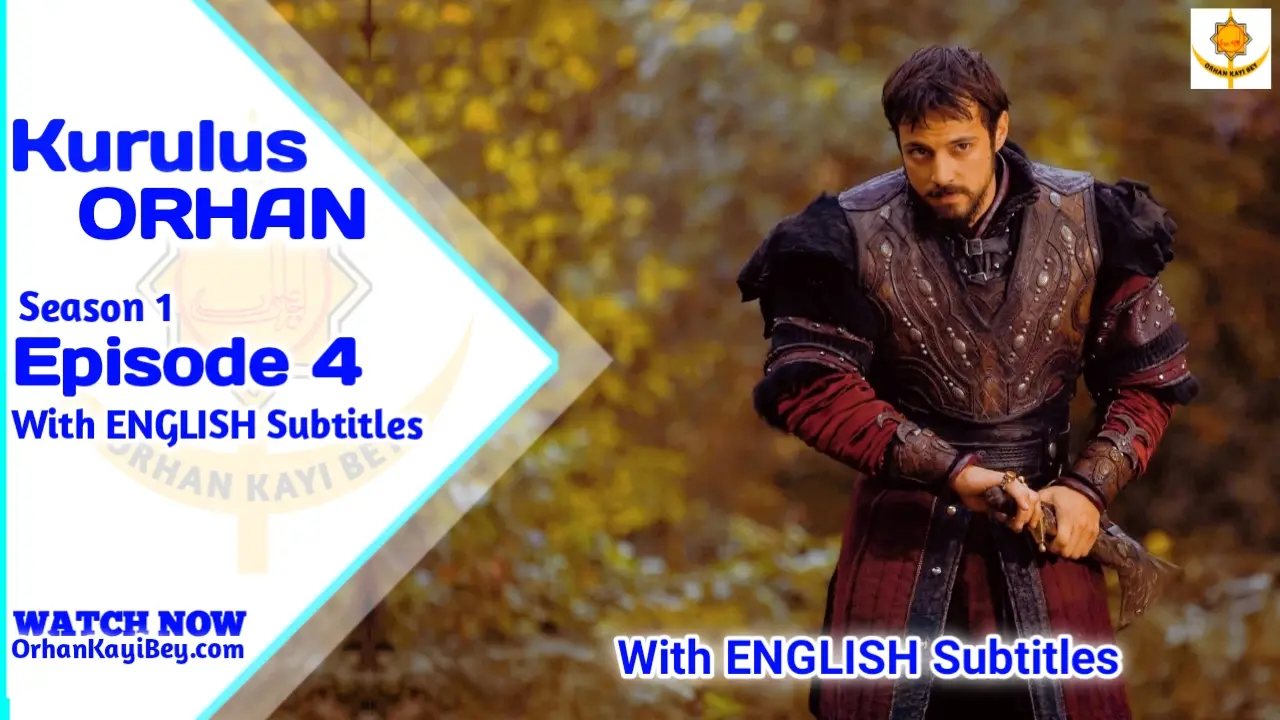Kurulus Orhan Season 1 Episode 4 With English Subtitles
When Brotherhood Splinters and Destiny Is Tested
Kurulus Orhan Season 1 Episode 4 With English Subtitles
Kuruluş Orhan Season 1 Episode 4 arrives like a crack across a frozen lake — sudden, loud, and with consequences that ripple far beyond what anyone first expects. This episode pivots on intimacy and catastrophe: the personal bond between Orhan Bey and his people, the fragile loyalty of brothers, the cruelty of occupying powers, and the slow, inevitable transformation of a young leader into someone history will remember. Told through forest ambushes, brutal raids, and a heartbreaking familial split, Episode 4 is less about a single battle and more about the forging — and fracture — of political will under pressure. This is the story of a community learning how easily its heart can be pierced, and of a leader realizing that courage often costs more than glory.
Table of Contents
- Introduction
- The Forest Ambush: Orhan Bey & Nilüfer’s Ordeal
- The Arrival of Kan Turalı and Abdurrahman — Loyalty in Blood
- Orhan Confronts Temurtaş: Diplomacy Under Swordpoint
- Flavius and Fatma Hatun: The Thin Line Between Revenge and Mercy
- Yarhisar Massacre: The Oba Shattered by Ilkhanid Rage
- The Brothers’ Fight: Orhan vs. Alaeddin — When Family Breaks
- The Aftermath: Exile and the Weight of the Oba
- Comparison Table: Historical Reality vs. Dramatic Emphasis
- Conclusion
- Key Takeaways
- FAQ
Introduction
Episode 4 does something rare: it turns the camera inward. Rather than staging a sprawling siege, the narrative focuses on intimate tragedies and moral tests that reveal character. The world of the Kayı is a landscape of loyalties both tender and combustible; here a single choice can sever old bonds and tilt the balance of power in Anatolia. The episode asks a painful question repeatedly: what do you protect first — your people, your pride, or your brother? Each scene is written like a study in consequence, where the physical violence is matched by emotional violence, and each casualty leaves an imprint on the community’s soul.
The Forest Ambush: Orhan Bey & Nilüfer’s Ordeal
The episode opens in the contracted green of the forest, a space both protective and treacherous in frontier storytelling. The forest is not simply a setting; it is a character — its shadows hide both grief and salvation. As Orhan Bey and Nilüfer Hatun walk under the canopy, they move from ordinary conversation into a world of steel and ambush. The trap is sudden — ropes, arrows, a ring of enemy blades — and the moments that follow are paced with raw human detail: Nilüfer’s breath held too long, Orhan’s hand finding a weapon, the micro-gestures of comradeship turned to combat instinct. This scene is cinematic and tactile — you feel the bark underfoot, the sting of an arrow, the tremor of the heart when a trusted path becomes a killing ground.
What makes the ambush more than action is the emotional tether: Nilüfer is not a mere companion; she is Orhan’s moral center. Their nearly simultaneous reactions display cohesion born of trust, not command. The danger exposes Orhan’s leadership in miniature: he does not only throw orders; he protects, risks, and shares fear. The forest sequence thus becomes an early test — a crucible where leadership and love must survive the same fire.
Arrival of Kan Turalı & Abdurrahman Loyalty in Blood
Just as the trap snaps tight, salvation arrives in the form of Kan Turalı and Abdurrahman. Their entrance is not a deus ex machina but a reminder that a leader is always embedded in a network of loyalty. The two warriors cut through the attackers with fierce precision; their arrival redistributes power in the scene. Suddenly the ambush is no longer just about survival but about the demonstration of what the Kayı truly are — a band whose bonds are forged in mutual sacrifice.
The arrival also foreshadows political realities: Orhan’s authority is as much relational as administrative. People rally for him because of who he is to them, not only because of what he commands. This is a vital distinction that the episode insists upon — authority rooted in love and loyalty becomes harder to delegitimize, even when political factions form.
I dedicate my time and effort to sharing Islamic history and the legacy of our heroes with the world. Your small donation helps me continue this mission. May Allah reward your support. 🤲
💖 Don’t be shy, even $3 makes a difference and helps keep this work going! ❤️
SOURCE 1
Orhan Confronts Temurtaş: Diplomacy Under Swordpoint
SOURCE 2
Orhan’s decision to meet Temurtaş is the episode’s strategic hinge. He sees that the siege of Bursa leaves the Kayı vulnerable from within; the pressure of Mongol-backed actors like Temurtaş means that local fractures will be exploited. The scene between Orhan and Temurtaş is a study in disciplined risk-taking: Orhan speaks like a man who knows the edge he walks — demanding, persuasive, but not naive. Temurtaş, for his part, is a cold embodiment of Ilkhanid policy: brutal, tactical, and indifferent to individual grief.
SOURCE 3
I dedicate my time and effort to sharing Islamic history and the legacy of our heroes with the world. Your small donation helps me continue this mission. May Allah reward your support. 🤲
💖 Don’t be shy, even $3 makes a difference and helps keep this work going! ❤️
This encounter is less about grand speeches and more about the weight of threats. Orhan promises to restrain Alaeddin and Şahinşah; the promise is a gamble: if he fails, the cost is physical, political, and moral. The scene teaches a key historical truth — in 14th-century Anatolia power survived through negotiation as much as war. Rulers like Orhan had to become adept at both forms of combat.
Flavius and Fatma Hatun: The Thin Line Between Revenge and Mercy
Parallel to the main political arcs is a quieter, more dangerous drama: Flavius’ obsession and Fatma Hatun’s stoicism. Flavius is painted as a man torn between rage and a strange, protective restraint. His plotting in Söğüt is methodical; he dreams of destroying his enemy but pauses when faced with Fatma’s presence. Their confrontation is emotionally charged — it is not merely a clash of bodies but a dueling of motives. Fatma Hatun is fearless yet human; Flavius is monstrous yet strangely intertwined with mercy in moments of hesitation.
This subplot matters because it keeps the episode balanced: while the brothers and armies clash in open view, emotional entanglements complicate the simplistic categorization of friend and foe. The writers deliberately blur lines, suggesting that hate can sometimes carry the seeds of denial or unreachable compassion.
Yarhisar Massacre: The Oba Shattered by Ilkhanid Rage
Temurtaş’ raid on Yarhisar is the episode’s brutal fulcrum. The sequence is unflinching: flames swallowing huts, bodies strewn, mothers screaming for sons who do not answer. The massacre is a political act — intended to terrorize, to remind the beyliks of the price of defiance. But it is also a cultural wound: the oba (tribal community) is a living thing; to harm it is to wound generational memory and honor.
When Malhun Hatun confronts Alaeddin after the raid, her words pierce the dramatized silence: “When we tear one another, the enemy devours our heart.” Her rebuke is not sentimental; it’s tactical and prophetic. The massacre reveals how external brutality leverages internal discord. It asks the viewer to see that pride and vengeance among brothers are not private sins — they are strategic vulnerabilities that empires exploit.
“When we tear one another, the enemy devours our heart.”
— Malhun Hatun (Episode 4)
The Brothers’ Fight: Orhan vs. Alaeddin — When Family Breaks
Nothing in this episode resonates as deeply as the fight between Orhan and Alaeddin. Sibling rivalry in warrior cultures contains a combustible mix of love, competition, and obligation; here it is a fateful collision. Alaeddin’s command to send Orhan to Karacahisar is not mild counsel — it is a test of authority that Orhan refuses. The argument escalates quickly into a public brawl, punches exchanged where strategy and lineage should be debated. The spectacle is horrifying because it is intimate; onlookers are forced to watch the implosion of the dynasty’s future.
Alaeddin’s decision to exile Orhan after the fight is decisive and tragic. The exile is both punishment and preemptive safeguard against perceived insubordination. But it is also historical storytelling at its bluntest: exile removes a vital actor from the local stage and sets the compass for wider consequences. Orhan’s removal renders the Kayı vulnerable to both internal demoralization and external manipulation.
The Aftermath: Exile and the Weight of the Oba
The closing beats of Episode 4 are not loud; they are heavy. Orhan’s exile becomes a political rupture that will echo beyond the episode’s runtime. The oba reels under twin griefs — for Yarhisar’s dead and for a son of Osman sent away. The camera lingers on faces that no longer know what the future holds: elders who remember how it once was, mothers who bury sons, and the young who must decide whether to follow brother or law.
Historically, exile in this context is loaded: it often meant the beginning of a new political path, alliances forged in distant lands, and the slow accumulation of followers galvanized by perceived injustice. The episode leaves viewers with a feeling like watching embers scatter on wind — small sparks that will become fires.
Comparison Table: Historical Reality vs. Series Interpretation
| Element | Historical Basis | Series Emphasis |
|---|---|---|
| Forest ambushes | Frontier raids were common | Cinematic focus on intimacy and trust |
| Mongol/Ilkhanid pressure | Real political force | Personified in Temurtaş for drama |
| Internal tribal conflict | Not uncommon | Amplified to create narrative break |
| Role of women (e.g., Malhun, Nilüfer, Fatma) | Influential behind scenes | Centered and vocal for emotional depth |
| Exile consequences | Historically significant | Used as a cliffhanger and catalyst |
Conclusion
Kuruluş Orhan Season 1 Episode 4 delivers a compact epic — small in geographic scope but massive in consequence. The episode shows that the true battles of history unfold not only on open fields but also in councils, in forests, and within the beating hearts of families. It presents the forest ambush, the Yarhisar atrocity, and the intimate rupture between brothers, crafting a morally rich narrative where leadership faces trials through loss, loyalty reveals itself through sacrifice, and exile transforms into the first step toward destiny. The emotional weight of this chapter shapes consequences that will echo long after the credits fade.
Key Takeaways
- The forest ambush reveals loyalty and the immediacy of leadership-tested bravery.
- Kan Turalı and Abdurrahman’s rescue underscores relational authority.
- The Temurtaş negotiation shows diplomacy is as dangerous as war.
- Yarhisar’s massacre exposes how outside forces exploit internal divisions.
- The brothers’ public fight and Orhan’s exile are epochal — personal rifts become political turning points.
- Women in the episode are pivotal moral and tactical voices, not background figures.
FAQ
The episode focuses on Orhan Bey’s leadership trials, the ambush on him and Nilüfer Hatun, internal power struggles, and Temurtaş’ın deadly attack on Yarhisar.
Yes. Episode 4 features a major turning point where the two brothers clash physically over leadership decisions.
A hidden ambush is staged against them, but Kan Turalı and Abdurrahman arrive in time to shift the balance.
Temurtaş launches a brutal raid on Yarhisar, causing heavy losses and shaking the entire Kayı Oba.

